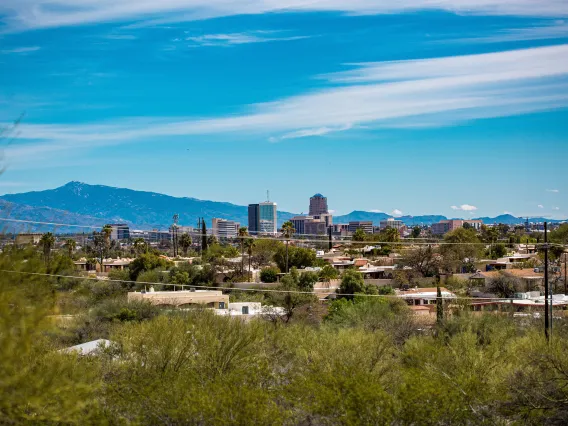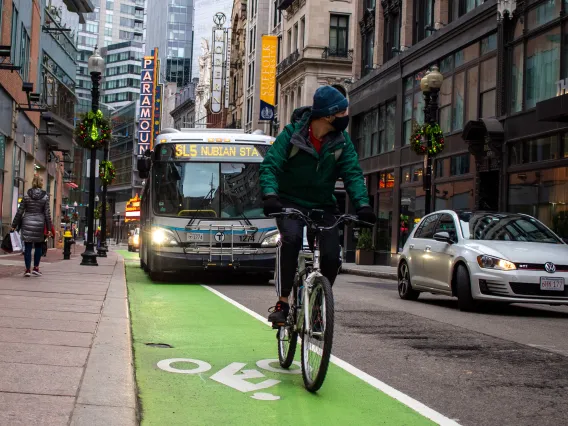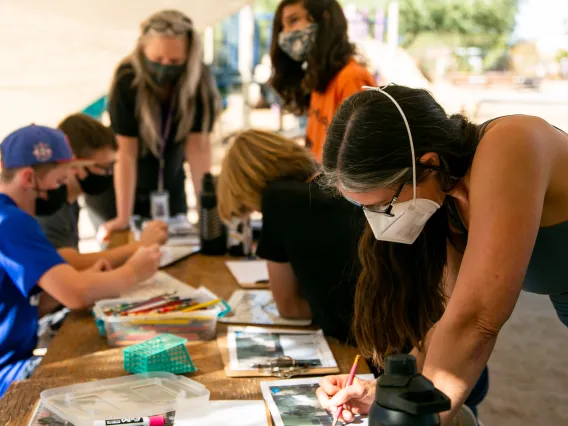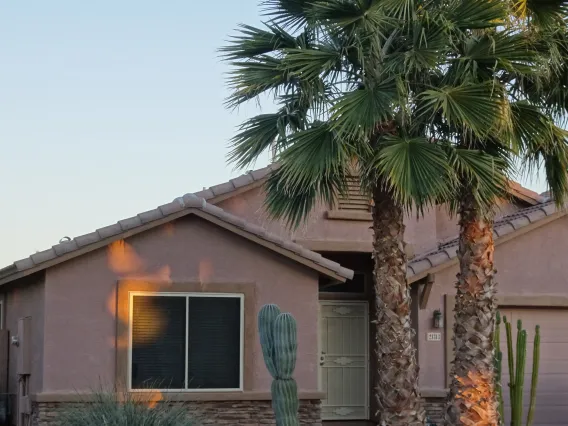Southwest Urban Corridor Integrated Field Laboratory (SW-IFL)
The growing urban megaregion that stretches across the state of Arizona is imperiled due to complex interactions of extreme heat, atmospheric pollutants, and limited water. The region experiences disproportionate impacts on vulnerable urban subpopulations. Some solutions are known and within reach. However, decision-ready knowledge is insufficient and often unavailable to mobilize specific action in places affected simultaneously by profound climate change and rapidly expanding cities. The Southwest Urban Corridor Integrated Field Laboratory (SW-IFL) is a multi-institution Field Laboratory funded by the Department of Energy that seeks to provide scientists and decision makers with high-quality, relevant knowledge capable of spurring and guiding responses to these environmental concerns. SW-IFL will develop and deploy novel observational and modeling capabilities that improve understanding of fate and transport of heat and pollutants in the complex airshed and landscapes of this megaregion. The integration of new observations with innovations in coupled models across scales will enable high resolution modeling. This modeling will be developed in close collaboration with stakeholders. The results will assist decision-makers in analyzing and evaluating solutions that promote equitable and effective policy interventions across the region.
Funded by the U.S. Department of Energy
Institutions: Arizona State University, University of Arizona, Northern Arizona University, IBM, Brookhaven National Laboratory, Oak Ridge National Laboratory
Learn more about the SW-IFL at the Department of Energy or ASU.
SW-IFL Projects at UArizona

PIRS for Heat will be used to assess how policies across diverse community plans affect heat hazards in different neighborhoods across the Sun Corridor and allow decision-makers to better target heat mitigation strategies.
Research Team: Ladd Keith and Sara Meerow (ASU)

The aim of the travel behavior surveys is to better understand how perceptions of heat influence travel choices throughout the region and to identify latent or unmet demand for different activities and access to services during times of high or extreme heat.
Research Team: Kristina Currans, Heidi Brown, David Hondula (ASU) and Ariane Middel (ASU)

K-12 curricular activities include the creation of teacher professional development opportunities and student engagement in community science. These activities are facilitated by the Arizona Project WET, a University of Arizona Cooperative Extension program that develops water stewardship and STEM literacy.
Research Team: Holly Thomas-Hilburn and Kenneth Kokroko

Indoor home heat risk is understudied and unaddressed by hazard mitigation planning and governance processes. We will address this gap through the investigation of home thermal security across SW-IFL.
Research Team: Mark Kear, Heidi Brown, and Jean Andino (ASU)
